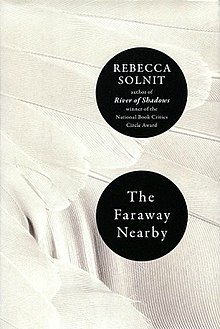
The Faraway Nearby
(Thanks to Roman Kudryashov for recommending this!)
The Faraway Nearby exists in a lineage of personal narrative and art criticism that I identify most strongly (and lovingly) with Didion but also includes, to varying extents, many other writers whom I find myself compelled to read even if I am not confident in their merit Rachel Cusk, Maggie Nelson, Alain de Botton. The latter is where I found myself most immediately drawing comparisons as I read the first few chapters of this book, and not particularly kind-hearted ones: Solnit's prose seemed to be self-consciously artiful and surface-level in a way that felt dissonant with the decline of her mother whose narrative defines and propels the book forward.
This hesitation — this lack of commitment to engage earnestly and deeply with the topics that she explores — fades as the book goes on. You're shuttled from one incredible core image — the mess of apricots, riping and decaying on a wooden floor — to a suite of motifs (glass; ice; mirrors) and you start to feel what Solnit is trying to share with you, which is the frenzied mess of connections and the way we search for meaning when meaning fails us.
This is a beautiful book. There are tiny moments and asides, like Solnit's rabbit-hole adventures into the mother who eats the corpses of her children to stay alive, that mark and haunt. There are big moments of personal narrative whose sleek diction belay the lack of clarity, and I (perhaps charitably) learned to love the book when I understood that Solnit was trying to be clear, and her failure is the point.
© 2023 Justin Duke • I hope you're wearing your favorite sweater.